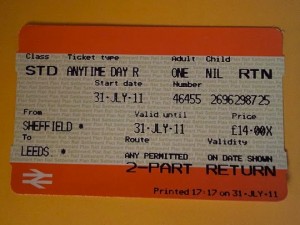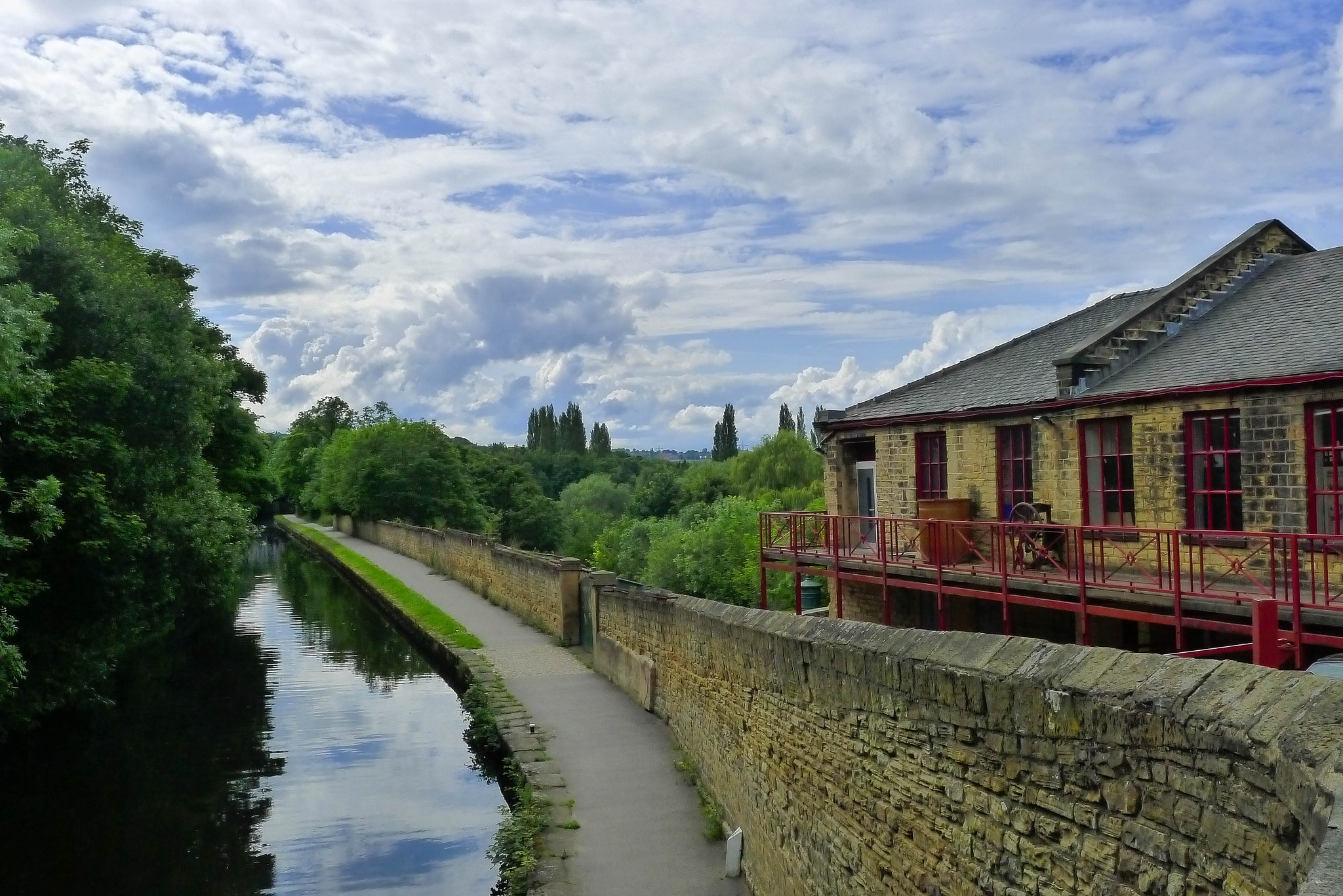Return tickets
 I was thinking, as I purchased a return ticket from Leeds to Sheffield, that I don’t really grasp the concept of return tickets.
I was thinking, as I purchased a return ticket from Leeds to Sheffield, that I don’t really grasp the concept of return tickets.
A return ticket is, as you probably know, a ticket that brings you back to your origin from your destination for (sometimes significantly) less than the cost of two one-way tickets.
In the case of National Rail, the cost of a return ticket is barely more than the cost of a one-way ticket.
Or, if you look at it another way, you almost have to pay for your journey home even if you don’t intend to take it. Even more bizarrely, the concept of a “day return” means you are penalized for not returning on the day you left.
The return ticket phenomenon means that people are strongly discouraged from making journeys that do not return by exactly the same route. This means if you take in two stops in a day, you are encouraged to return to the first stop after the second before travelling home, even if this is not the most direct route, wasting time and energy on what, exactly?
I’ve always thought these two points were a bit bizarre, but figured there must be some capitalist reason behind the concept. Some way that National Rail ends up making more money by offering this service.
If all one-way fares were half the price of a current return ticket, then yes, some money (how much, really?) would be lost on people who travel in one direction and don’t come back. But what on Earth is the financial reason for giving people a discount to come home on the same day they leave?


 Leeds-based non-binary nerd and sewist. I won't break my streak on Duolingo for anyone.
Leeds-based non-binary nerd and sewist. I won't break my streak on Duolingo for anyone.  Delicious
Delicious Leeds Beer Quest
Leeds Beer Quest Twitter
Twitter
The financial reason for giving people a discount to come home on the same day they leave is probably to target people who make semi-frequent day-trips, making it sound more appropriate than, say, a season-ticket.
I guess so. Still smells suspiciously like social engineering and I don’t like it!
Naturally. Well, of course, capitalist pricing strategy dictates that there’s a profit to be made from those who either can’t afford to buy into economies of scale and/or who are too daft to recognise there’ll be a cross-over of cost-efficiency.
It’s load balancing. Most routes are bidirectional. The train runs along the line one way, then it comes back. And it finishes at the same place it starts, so it makes an even number of journeys. You want people to return by the same route that they came (and on the same day) because you don’t want your train to be overfull in one direction and empty on the way back. It breaks down at peak time, of course, because everyone is going the same way. But that’s why those tickets cost more, which both covers the cost of the empty return train and encourages casual travellers to wait an hour.
I think the same route/stop problem is dictated by the licensing to operators, and sometimes the only way to differentiate which service you've paid for (to recall numerous times on Virgin Trains where people are on the Wrong Train, and not just by time).
It should be obvious – it's price discrimination. They have done a study, and found that people who return on a different day don't MIND paying more for a return ticket, and the increase in price isn't enough to force them off the trains. It's the same principle as peak time pricing – people value being able to arrive and return in time for work and in time for after work enough to pay the increased price.